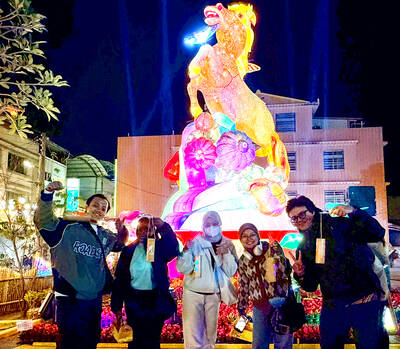Although Taiwanese diva Teresa Teng passed away 15 years ago, her songs have continued to enchant millions of her fans. An Internet survey organized by the Teresa Teng Foundation for her fans in Taiwan, Hong Kong, Southeast Asia and China showed that Spring in the Northland is surprisingly the most popular of all her hits. This number one hit received more than 9.82 million votes, followed by the second most popular I Only Care About You, with 950,000 votes, and her most well-known song The Moon Represents My Heart, which made it to third place.
This Internet survey was conducted by the Teresa Teng Foundation and POP Radio, along with more than 20 other radio stations around Asia. The results were released after a month-long vote. The Japanese language Spring in the Northland, released in 1979 obtained over half of the total votes.
This song’s original performer was Japanese enka singer Masao Sen. Both Taiwan and Hong Kong have their own modified versions, which are Under the Banyan Tree sung by Taiwanese singer-turned-politician Yu Tian, and the Cantonese version The Rain of Hometown sung by Fanny Wang. Then a Chinese-Japanese version was released, with lyrics written by Lin Huang-kun.
The top 50 songs selected by Teresa’s fans on the foundation’s Web site will be published on three CDs. This is the first time that her fans have decided on the songs to be used. The Teresa Teng Foundation will organize a concert in memory of the diva in Chengdu, the capital city of China’s Sichuan Province on May 14, with all profits from the concert going to charity.
(LIBERTY TIMES, TRANSLATED BY TAIJING WU)
鄧麗君辭世十五週年,歌聲魅力無法擋,一項包含台灣、香港、東南亞、中國等地區鄧迷所進行的「鄧麗君最愛歌曲網路票選」活動,一個月內竟湧進兩千萬票,「北國之春」爆冷,獲九百八十二萬票拿到歌迷最愛第一名,全亞洲歌迷所熟知的「我只在乎你」、「月亮代表我的心」分居二、三名,「我只在乎你」拿到九十五萬票,票數一樣很驚人。
鄧麗君文教基金會、POP Radio聯合亞洲二十幾家電台,進行「鄧麗君最愛歌曲網路票選」活動,歷經一個月的票選,由鄧麗君在一九七九年發行的日文歌「北國之春」拿到近半數的票數,勇奪第一名。
「北國之春」原唱者為日本著名演歌歌手千昌夫,台灣、香港都有改編版,包括余天的「榕樹下」、薰妮唱的粵語版「故鄉的雨」,特別喜歡這首歌的鄧麗君,後來還請林煌坤重新填詞、錄製成中日文版的「我和你」。
這次票選前五十首歌曲,將收錄為三張專輯發行,也是鄧麗君發行過的專輯中,第一次由歌迷決定曲目,而基金會也將在五月十四日於四川成都舉辦鄧麗君紀念音樂會,扣除成本所有收入將捐做公益。
(自由時報記者陳慧貞)

A: Harvard professor Robert Waldinger’s “7-day Happiness Challenge” includes: Day 1: Take stock of your relationships; Day 2: The secret power of an 8-minute phone call; Day 3: Small talk with strangers has big benefits. B: That’s not too hard. What’s next? A: Day 4: Why you should write a “living eulogy;” Day 5: The importance of making work friends; Day 6: Don’t cancel those social plans. B: Good ideas. What’s the final challenge? A: Day 7: Keep happiness going all year long. So, I’m inviting some friends to the Taipei Lantern Festival today to build good relationships. Wanna

★ 本文由生成式 AI 協作,本刊編輯編修。 For tourists looking for a scenic way to spend an afternoon in Kaohsiung, heading to the British Consular Residence of Takao is the perfect choice. Its elevated position allows one to take in the bustling Kaohsiung Harbor to the east and the dazzling sunset over Sizihwan Bay to the west. This elegant red-brick building also serves as a portal to the city’s rich history. Interestingly, for 70 years, many people mistakenly identified this residence as the actual consulate. The history of “Takao,” the former name of Kaohsiung, began its international chapter in the mid-19th century. As European powers

★ 本文由生成式 AI 協作,本刊編輯編修。 Continued from yesterday(延續自昨日) https://www.taipeitimes.com/News/lang Kaohsiung’s deep connection with the sea continues to thrive, with Kaohsiung Harbor remaining a crucial hub for global shipping. In addition to the port, the city has emerged as a major player in another world-class maritime industry—yacht manufacturing, responsible for producing 80 percent of all Taiwan-made yachts. The yacht industry in Taiwan originated in the post-World War II era, when the US military presence in Taiwan provided local boat builders with guidance on making wooden yachts. The resulting craftsmanship was so exquisite that orders soon poured in. In 1977, Taiwan replaced Canada as the main yacht

★ Bilingual Story is a fictionalized account. 雙語故事部分內容純屬虛構。 The fog came before the knock. It covered the street and pressed against the window. Chao Gung-dao lit a small oil lamp, but his makeshift hut stayed dim. Another knock. Chao opened the door. The inspector stepped inside and removed his hat. He did not smile. “You remember me?” the inspector said. Chao resented the question. The inspector looked around the small room. His eyes stopped on a wooden box resting on a low beam above Chao’s head. “What is that?” Chao stayed silent. The inspector pulled the box down and